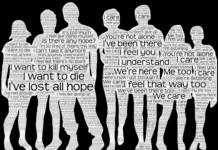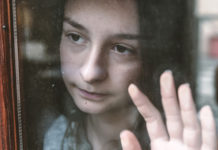A Time For Rain: Teaching Our Children About Sadness
The only way out of the epidemic of feeling-people-turned-medicated-psychiatric-patients is to rebrand and reframe feeling as a cultural collective. And I believe it starts with our messaging as parents and our orientation toward shadow elements like anger and sadness. We have to model a conscious relationship to our own dark parts, and we have to show our children what it looks like to move through these spaces. Feelings can be messy, wild, and sometimes ugly to our constrained sensibilities.
Envisioning Psychiatric Drug Freedom
Psychiatric meds can shut down the emotions and consciousness enough to make it possible to tolerate dynamics that would inspire rage or surges of empowered activity without the meds. It can be helpful to look closely at these blocks and start to create a map to freedom, understanding that it is a complex process that involves not only the physiology of the body of the individual taking meds, but the architecture of the social system around that person.
Call to Monitor Adverse Effects of Antipsychotics in Youth
Researchers point to the risks of using antipsychotics with youth and caution against the practice.
Resistance Matters: The Activism of Don Weitz
I have spent much of the past few years compiling and editing Resistance Matters: An Antipsychiatry Activist Speaks Out, which will document the long and rich activist career of Don Weitz, the grandpappy of Canadian antipsychiatry. Before I met Don in 1986, I thought I was the only person in the world who didn’t believe in “schizophrenia” (with which I had been diagnosed), and who realized that psychiatry was completely bogus.
New Study Investigates Negative Side Effects of Therapy
Researchers find that nearly half of cognitive behavioral therapy (CBT) patients experience treatment side effects.
Prescripticide: A Proposal for Action and a Request for Your Help
The primary factor protecting psychiatry’s unwarranted power and authority is that it is perceived as shielding society from folks who are believed to be dangerous. It would seem, then, that one logical step toward reducing society’s trust in biological psychiatry would be to reveal the evidence of a significant correlation between the use of prescribed psychoactive drugs and the commission of violent acts against oneself or others.
Study Shows Success With Reduced Antipsychotic Use
People who reduced antipsychotic use by tapering were doing just as well after five years as those who continued using the drugs.
Deadly Serious: Talking Openly About Suicide
The suicide crisis is real. The pain is real. The deaths are real. None of us can afford to stick our heads in the sand and pretend that this isn't happening. But the helplessness and confusion about what to do about it are also real. And that's why peer relationships and peer-developed modalities can be so helpful. Many of us have been there and are still alive to talk about it. We know what ways of relating gave us hope and helped us to continue on.
The Creativity and Suicide of Robin Williams: A Phenomenological Study
My purpose in writing this case study is not to suggest that creativity is a mere byproduct of trauma, or to deny the role of so-called mental illness in suicide, but to situate these phenomena within the context of human lives. To render them humanly (rather than medically) intelligible. With his mind and body disintegrating, Robin Williams took his life to thwart the eradication of self.
Lack of Efficacy for Current Physical Activity Interventions in Persons Diagnosed with Severe Mental...
Review finds a need for more rigorous research to increase physical activity in people diagnosed with a severe mental illness (SMI).
Hegemonic Sanity and Suicide
The “good” suicide attempt survivor wakes up in a hospital bed bathed in beautiful natural light, surrounded by the people who love them most, and they realize that their thinking was flawed and all those unsolvable problems can actually be solved if they are just compliant with medication and therapy. And then there's the “bad” suicide attempter who is angry that they lived, who challenges the status quo.
Valproate Linked to Decreased Brain Volume in Children Diagnosed with Bipolar Disorder
Researchers find that valproate decreases brain volume in a region associated with emotion processing across all participants.
Suicidal Tendencies, Part III: So, When Do I Get to Call the Cops?
What if the key to saving someone is to admit you are powerless to save anyone at all? What would that beckon us to change? A few years ago, I spent a substantial amount of time talking with a man who entered my life because someone in the mental health system told him I might be the one who could save him (or at least, that’s how he heard it). His name was David.
Study Explores Pain Assessment for Medically Complex, Nonverbal Children
To what extent are healthcare providers equipped to assess nuance in the experiences of pain among nonverbal children?
Researchers Can’t Predict Whether Childhood ADHD Will Impact Adult Functioning
New research has found that a childhood ADHD diagnosis is not predictive of adult functioning in boys.
Study Reduces Over-prescription of Antipsychotics in Older Adults
New intervention shows promise in reducing over-prescription of off-label antipsychotics in older adults.
Thar’s A New Sheriff in Town!
As a longtime participant in the conversations here on Mad in America, I’m very excited about taking on the role of moderator for the MIA discussion boards. MIA considers the community discussions to be integral to its mission to serve as a forum for “rethinking psychiatry,” and I am assuming this role at a time that the organization, in response to the reader survey we conducted, is striving to make the discussions more welcoming to all.
Results of the 2018 Mad in America Reader Survey
In June 2018, we ran our first ever reader survey. The purpose of the survey was to gain feedback on what you, our readers, want to read and thus provide helpful suggestions for future content. This update provides a brief review of the results of the survey so far and outlines what actions we will take in response. Thank you to all who responded for taking the time to tell us how you feel about Mad in America.
The Scientism of Childhood and Adolescent Depression
When I was training to be a child psychiatrist in the mid-1990s, childhood depression was considered to be rare, related to adversity, and generally unresponsive to pharmaceutical treatment. Since then much has changed. The psychiatrization of the pain and struggles involved in growing up has caused considerably more harm to young people than good. I believe the science is on my side in this conclusion.
Screening Instruments Do Not Reflect Individual Experiences of Depression
Researchers detect discrepancies between the language used to describe lived experiences of mental health and the language used in modern screening tools.
In Defense of Healthy Mania
It is important to distinguish, and not simply pathologize, experiences that are manic-like because they are time-honored states of mind associated with aspiration, ambition, and goal-achievement. The need to generate boundless energy, overtalk the issues to sustain single-minded focus and motivation, and have a somewhat grandiose vision of what can be accomplished, combined, can eventuate in a manic mix of tendencies necessary to bring higher-order goals to fruition.
Mindfulness Improves Resiliency to Stress in University Students
New research demonstrates the lasting effects of mindfulness training on stress and wellbeing among university students.
The Effect of Psychiatric Diagnosis on Young People’s Sense of Self and Social Identity
A new review highlights the effects that psychiatric diagnosis has on children and adolescents’ social relationships and views of self.
Can Children Have Bipolar Disorder?
After seeing the family for two sessions I came to the conclusion that what Adam was suffering from was inconsistent discipline, temper tantrums and misbehavior that were inadvertently encouraged by his parents. The correct prescription for Adam was not an antipsychotic medication that might cause him harm, but family therapy to help the parents implement a behavioral program that would fit Adam’s needs.
Mental Health Apps May Lead to Overdiagnosis, Study Finds
A new study finds that mental health apps promote a one-dimensional view of mental health.
































